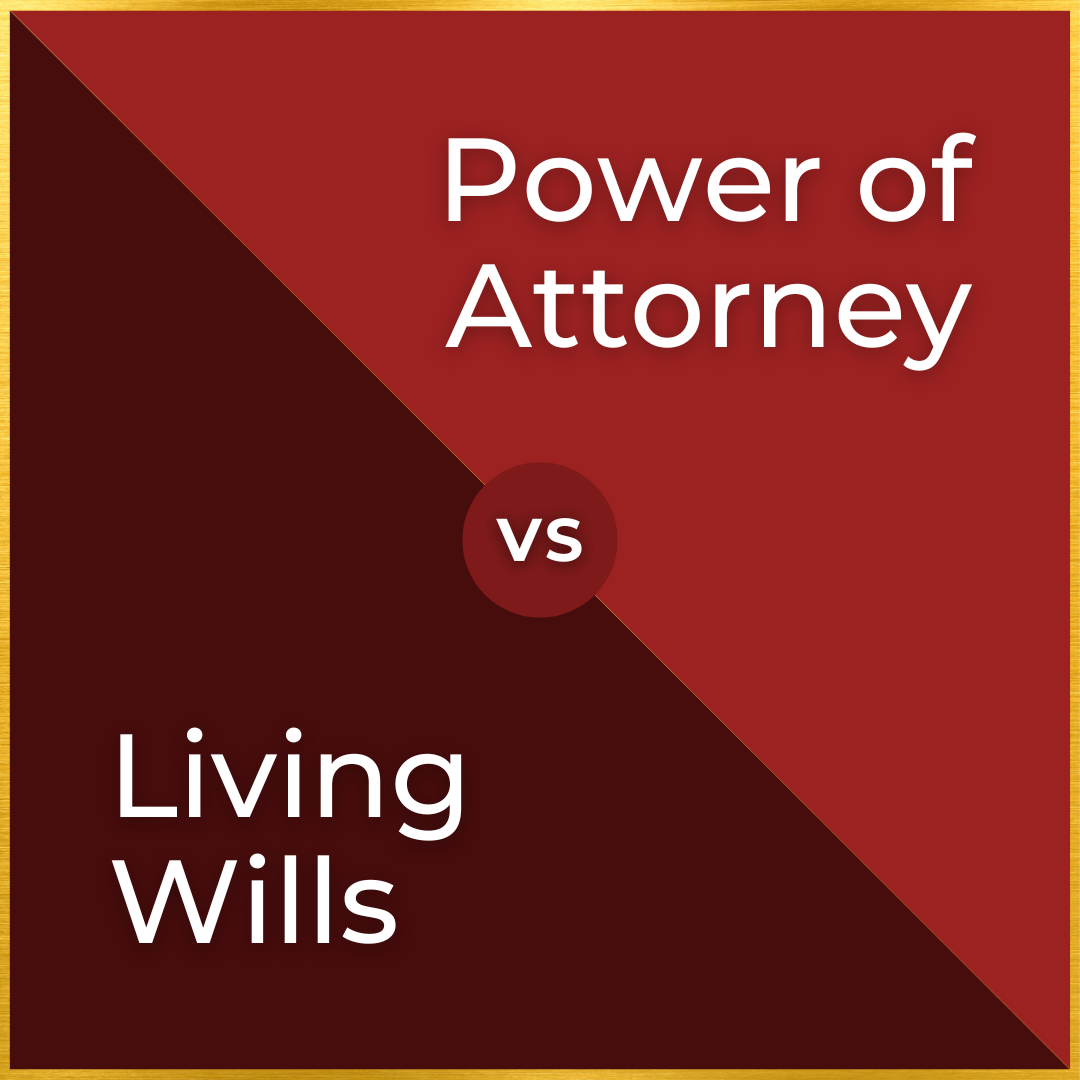The main difference between a power of attorney and a living will lies in their purpose and the scope of authority they grant to individuals. Read more about each below.
Power of Attorney:
- Purpose: A power of attorney is a legal document that grants authority to another person, known as the “agent” or “attorney-in-fact,” to act on behalf of the “principal” in various financial, legal, and personal matters. The principal may delegate specific powers to the agent, allowing them to make decisions and take actions on the principal’s behalf.
- Types: There are different types of powers of attorney, such as general, limited, durable, and springing powers of attorney, each with varying degrees of authority and duration.
- Scope: A power of attorney primarily deals with managing the principal’s affairs while they are alive, especially in situations where the principal is unavailable, incapacitated, or unable to make decisions.
- Authority: The agent’s authority can range from handling financial transactions, managing real estate, accessing bank accounts, paying bills, making legal decisions, and representing the principal in business matters.
- Revocation: The principal can revoke or terminate the power of attorney at any time as long as they have the mental capacity to do so.
Living Will:
- Purpose: A living will, also known as an advance directive or healthcare directive, is a legal document that expresses a person’s medical treatment preferences and wishes regarding end-of-life medical care.
- Scope: A living will comes into effect only when the individual is incapacitated and unable to communicate their healthcare decisions, typically due to a terminal condition or in a persistent vegetative state.
- Medical Decisions: In a living will, the individual can specify their preferences for life-sustaining treatments, such as artificial respiration, feeding tubes, organ donation, and other medical interventions.
- Agent vs. Living Will: While a power of attorney designates someone to make decisions on the principal’s behalf, a living will does not designate an agent. Instead, it directly provides guidance to medical professionals and family members regarding the individual’s healthcare wishes.
- Revocation: Like a power of attorney, a living will can be revoked or updated by the individual as long as they are mentally competent to do so.
Combining Both Documents:
In some cases, individuals may choose to have both a power of attorney and a living will to cover different aspects of their affairs. A power of attorney addresses financial and legal matters during the individual’s lifetime, while a living will ensures that their medical treatment preferences are followed if they become incapacitated and unable to communicate their wishes.
It’s crucial to consult with an attorney when creating these legal documents to ensure that they align with your specific needs and comply with the laws of your jurisdiction.


